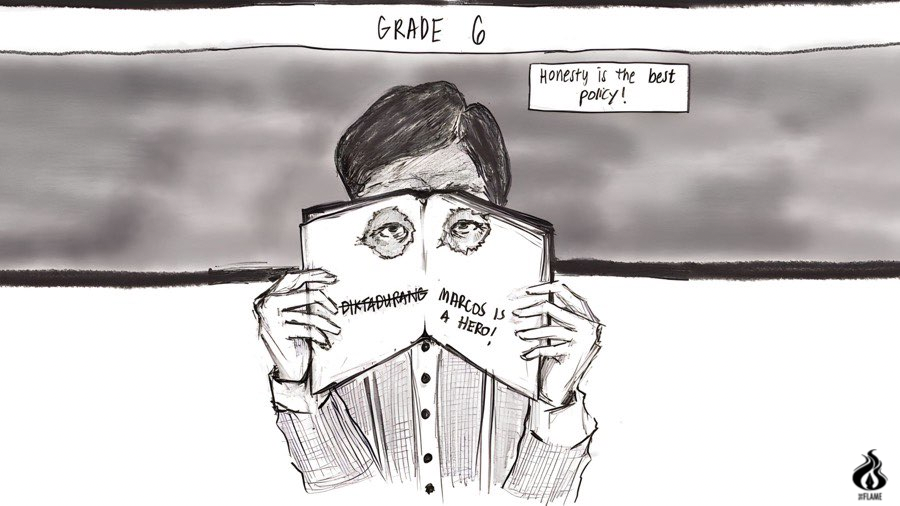
WEEKS BEFORE the 51st anniversary of Martial Law, the Department of Education (DepEd) released a memorandum ordering the change of “Diktadurang Marcos (Marcos dictatorship)” to just “Diktadura (dictatorship)” in the Grade 6 Araling Panlipunan syllabus under the Matatag curriculum.
DepEd confirmed the existence of the memorandum but clarified that the curriculum would still be subjected to a review by teachers, students and other stakeholders of the education sector.
The attempts to distort history to rehabilitate the image of the late dictator Ferdinand Marcos, Sr. did not come as a surprise. After all, his son’s victory during last year’s presidential race is widely seen as a triumph of disinformation and propaganda. What is shocking, even revolting, is that the DepEd, which is composed of teachers who shape the minds of students during their formative years, is muddling a well-established historical fact.
Was the DepEd pandering to the powers-that-be in Malacañang? Were the educators working for the agency forced to reinforce the pro-Marcos narrative, knowing fully well that they are under the intelligence-fund-wielding vice president? We can only speculate on the reasons behind the controversial memorandum but one thing is for sure: Education officials who are behind that directive have degenerated from teachers to whitewashers.
The Marcos legacy follows like a muscle memory whenever the term dictatorship is brought to the table. There is no helping it. Several accounts and pieces of evidence have carved this truth 51 years deep into history despite pathetic attempts by trolls and paid influencers to deny it.
Disassociating ‘Marcos’ from ‘dictatorship’ in learning materials is not just an insult to those who sacrifice in the arduous and often lopsided battle for the truth. It also dishonors the memory of the people who lost their lives under the authoritarian rule and complements the Marcos myths that are filled with false nostalgia and exaggerated exploits. The teachers-turned-whitewashers should also be reminded of Republic Act 10368, which states that the DepEd and the Commission on Higher Education are mandated to teach the lessons gained from the Martial Law atrocities.
The DepEd denied that political pressure was behind the much criticized move to detach the name “Marcos” from “dictatorship.” According to the agency, the lessons presented were “not particular on any person but on the historical events.”
Suppose the agency intended to “organize” the title of topics in the curriculum outline. In that case, it still begs the question: Is the directive a way to arrange the social studies curriculum based on themes? Or is it a deliberate effort to deviate attention from the person behind the infamous military rule that saw thousands of people imprisoned, tortured and murdered?
No amount of verbal calisthenics or academic jargon will change the fact that the memorandum reeks of subtle indoctrination, a policy that will serve the interests of the Marcoses, not the learners.
Truth, not politics, should determine the direction of the policies in education. “Diktadurang Marcos” is not a concept fabricated by activists, yellowtards or critics of the blood-tainted regime. It is not an invention of spiteful authors who are out to tarnish the reputation of the Marcos family. It is a term born out of the policies and actions of Marcos Sr.’s authoritarian rule, a truth that the next generation of Filipinos should learn about.
Call a spade a spade. Call a whitewasher a whitewasher. Call a dictator a dictator. Let the man be tied forever to his “legacy” and let every child from here on forward remember it. F



